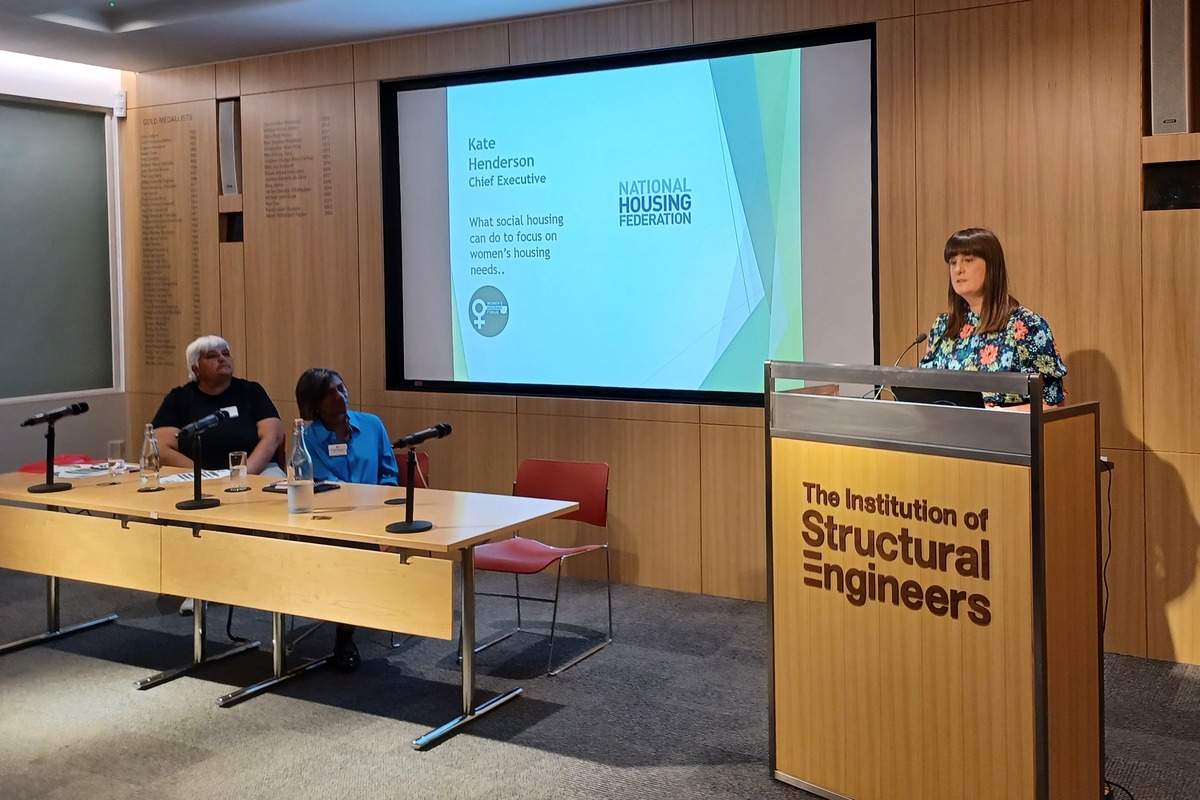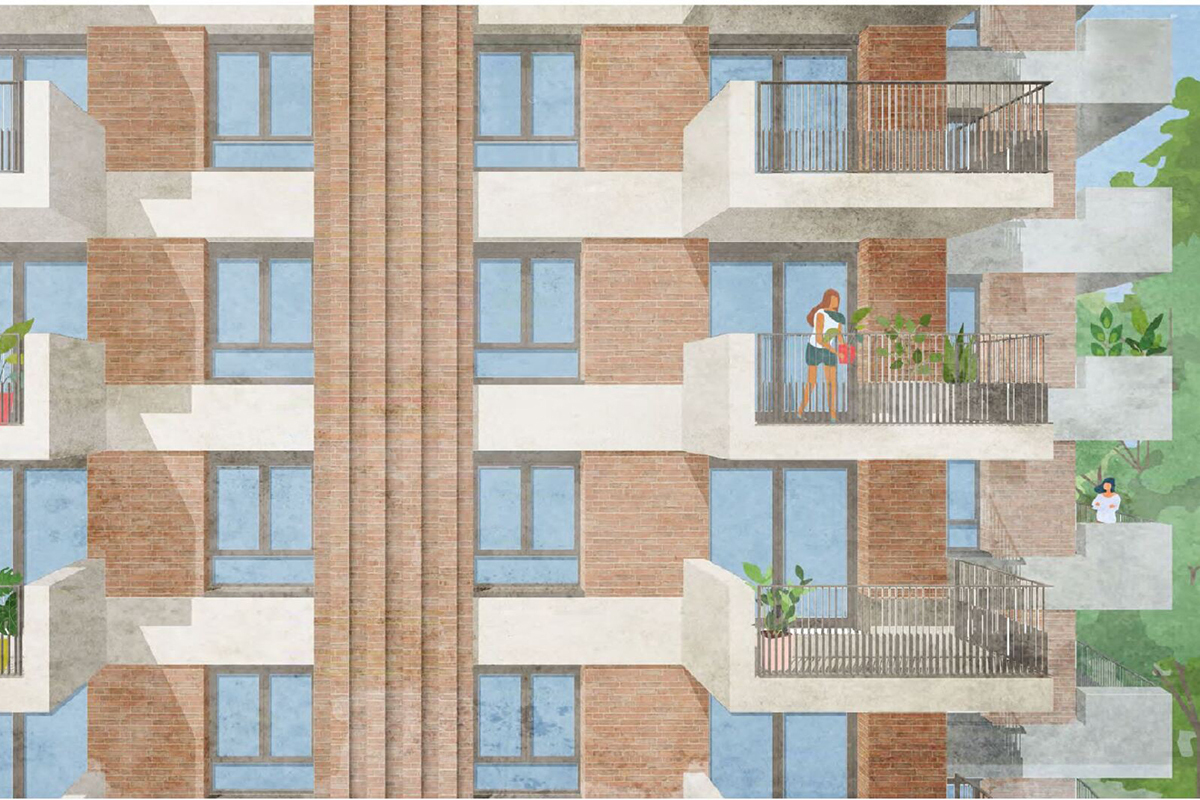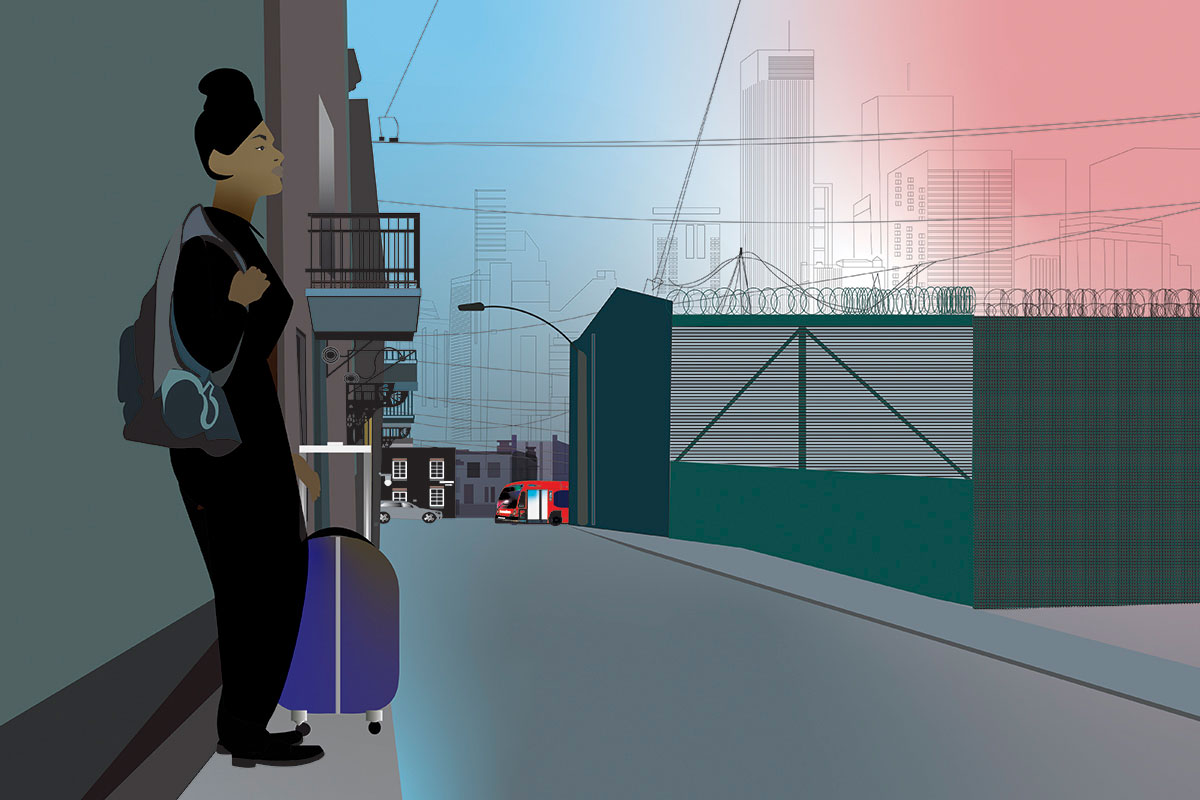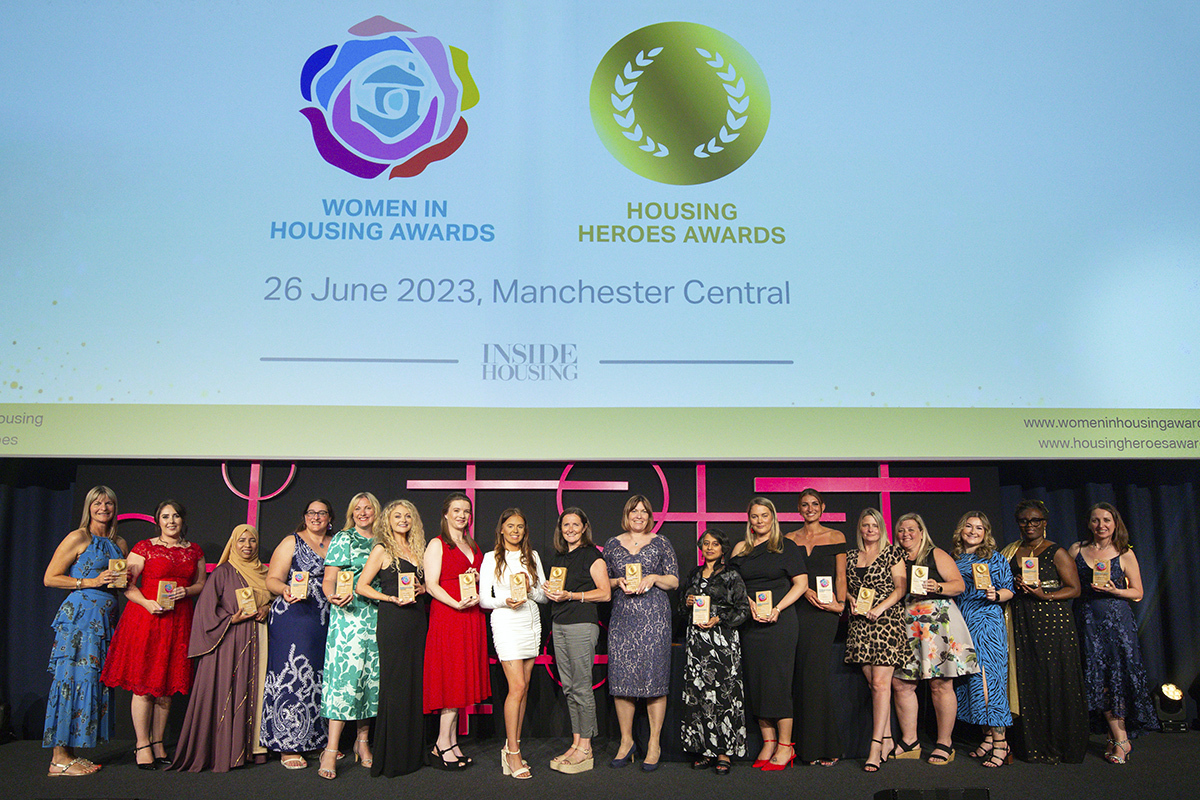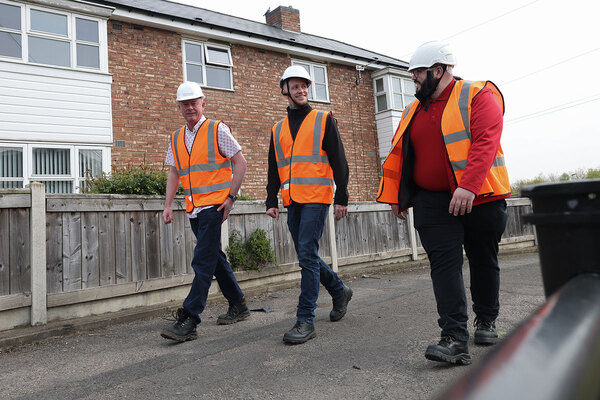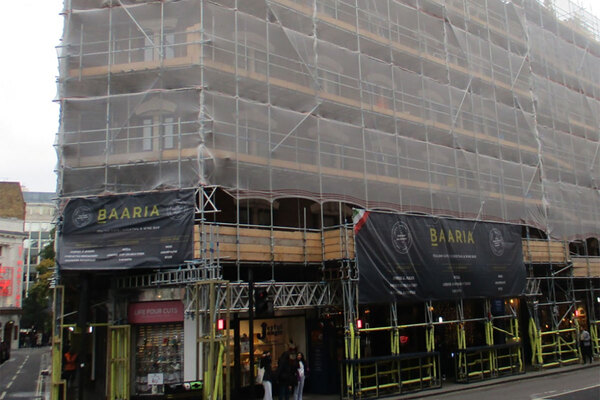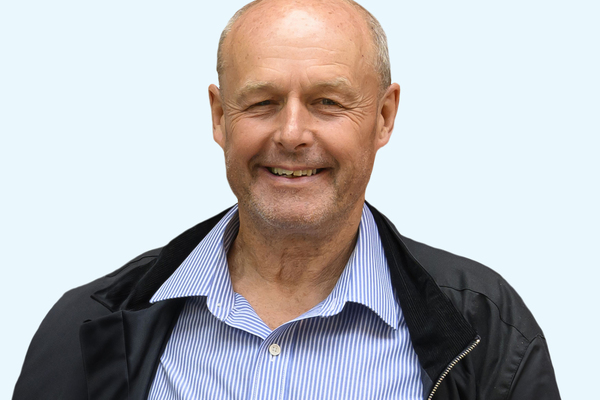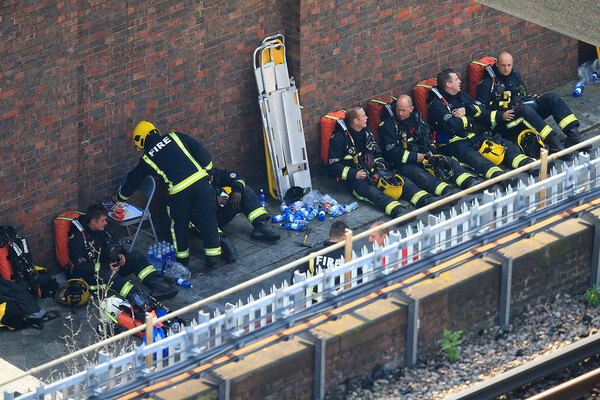You are viewing 1 of your 1 free articles

Zaiba Qureshi is CEO of Housing for Women and Tracey Downie is CEO of Women’s Pioneer Housing
A feminist approach to housing is just as needed as ever
Zaiba Qureshi and Tracey Downie explain why they decided to relaunch the Women’s Housing Forum
The Women’s Housing Forum was started by a group of like-minded individuals, predominantly from the social housing sector, who came together to tackle the structural inequalities women face in accessing and retaining suitable housing.
It was clear to us that these issues had a gendered aspect and we began to explore these at our initial launch in February 2018.
We used this event to raise awareness of the links between women’s housing needs and gender inequality, and to encourage partners inside and outside the sector to work together to address these issues and to assert that: Housing is a feminist issue!
Since then, the Women’s Housing Forum has been delivering a range of webinars in partnership with experts, raising awareness of issues that have included: older women’s co-housing, domestic abuse and housing, young women and homelessness and, most recently, the cost of living crisis and its impact on women’s housing.
Like many others, we could see clearly that a combination of the COVID-19 pandemic, volatility in the economic climate and the subsequent cost of living crisis was exacerbating an already disadvantaged position for women.
“Women are often trapped in poor housing, trapped in abusive relationships that they cannot afford to leave, or acting as a poverty buffer for the benefit of their families”
As leaders of our respective women’s housing associations, we could see the worsening position women found themselves in first-hand. On this basis, we felt that it was time to relaunch the Women’s Housing Forum to re-emphasise this issue at a face-to-face event.
This year’s event was once again kindly sponsored by Devonshires Solicitors, which secured the Institution of Civil Engineers’ headquarters as the venue for our relaunch.
Following an opening by Donna McCarthy, a partner and head of housing management and property litigation at Devonshires, who provided her personal perspective on the issues affecting women’s housing today, we were delighted to have a range of speakers.
These included Kate Henderson, chief executive of the National Housing Federation, who spoke about what social housing can do as a sector to focus on women’s housing needs.
Lara Oyedele, president of the Chartered Institute of Housing, shared a toolkit of what she felt was required to equip housing professionals to meet women’s housing needs more effectively.
We were also very pleased that Sem Moema, London Assembly member and deputy chair of the housing committee, shared the recommendations of the committee’s Women and Housing report, including increasing the supply of housing and considerations around the commissioning process for domestic abuse services.
Colleagues from Hibiscus Initiatives, Advance Minerva and Housing for Women delivered workshops where attendees could get a more detailed understanding of two particularly marginalised groups: women with no recourse to public funds and women who have been involved in the criminal justice system.
Both of these sessions were very animated. We had the honour of hearing the moving first-hand account of a migrant woman’s experience of temporary accommodation for her and her disabled daughter.
These workshops really highlighted how women’s intersectionality additionally impacts on their experience of navigating the housing arena. The experiences that were highlighted shocked even those of us who have been in the sector for decades, and the feedback from these sessions will definitely form part of our future work.
“As leaders of our respective women’s housing associations we could see the worsening position women found themselves in first-hand”
We also revisited the impact the cost of living was continuing to have on women’s housing needs. Combined with the impact of COVID-19, the erosion of benefits during many years of austerity and the stagnation of real wages are affecting women disproportionately. Women are often trapped in poor housing, trapped in abusive relationships that they cannot afford to leave, or acting as a poverty buffer for the benefit of their families.
The economic position of women combined with their specific housing needs shows no real signs of improving. It is clear to us that the focus of the Women’s Housing Forum is even more relevant today.
Housing is still a feminist issue!
Zaiba Qureshi, chief executive, Housing for Women, and co-chair, Women’s Housing Forum; Tracey Downie, chief executive, Women’s Pioneer Housing, and co-chair, Women’s Housing Forum
Sign up for the IH long read bulletin
Already have an account? Click here to manage your newsletters
